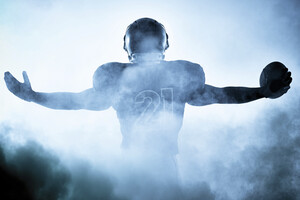
Following the U.S. District Court docket for the Japanese District of Tennessee’s grant of a preliminary injunction within the current case filed in opposition to the NCAA, captioned Tennessee and Virginia v. NCAA, the NCAA has determined to halt investigations into third-party involvement in title, picture, and likeness (NIL) compensation offers with Division I faculty athletes. In granting the injunction, the Court docket opined that the NCAA’s guidelines stop athletes from “acquiring full, truthful market worth for [their NIL] rights,” and opined that such restrictions had been “anticompetitive.”[1]
Whereas the NCAA maintains sure insurance policies concerning NIL compensation, comparable to prohibiting colleges from instantly paying athletes or tying compensation to athletic efficiency, it has opted to pause investigations involving third-party participation, or teams which are generally generally known as NIL collectives.[2]
By pausing the enforcement of those guidelines, collectives are in a position to negotiate NIL offers with recruits with out threat of NCAA investigation presently. NCAA president Charlie Baker introduced the pause on these guidelines in a memo despatched to member colleges shortly following the Court docket’s choice:
In response to this newest order, the Division I Board of Administrators directed NCAA enforcement workers to pause and never start investigations involving third-party participation in NIL-related actions. There will likely be no penalty for conduct that happens according to the injunction whereas the injunction is in place. I agree with this choice, whereas the progress towards long-term options is underway and whereas we await discussions with the attorneys normal. In circumstances which are lower than superb, this no less than provides the membership discover of the board’s path associated to enforcement.[3]
The pause comes after the NCAA investigated colleges like Tennessee and Florida over their collectives’ NIL dealings with recruits.[4] With big-money collectives changing into more and more influential in recruiting for sports activities, the NCAA’s earlier stance was changing into troublesome to implement persistently.[5] For now, collectives can brazenly negotiate NIL contracts with incoming recruits and transfers, although the contracts can’t be de facto pay-for-play agreements.
The scenario underscores the quickly altering NIL panorama and the NCAA’s try to manage NIL whereas coping with authorized challenges. Because the Tennessee case continues, the NCAA is taking a hands-off strategy to collectives’ NIL actions relatively than threat going through judicial roadblocks.
[1] Court docket Grants TRO in NIL Lawsuit, Squire Patton Boggs, https://www.sports activities.authorized/2024/03/court-grants-tro-in-nil-lawsuit/ (March 4, 2024).
[2] NIL Collectives are organizations or teams that facilitate and handle endorsement offers and sponsorship alternatives for school athletes. These collectives work on behalf of athletes to safe compensation for using their title, picture, and likeness in numerous business ventures. Although usually tied to and related to explicit NCAA-affiliated colleges, these collectives usually are not formally tied to any college – therefore their reference as third events.
[3] Charlie Baker Halts NCAA’s NIL Investigations Following Preliminary Injunction in Tennessee, On3NIL, https://www.on3.com/nil/information/ncaa-issues-updated-nil-guidance-after-preliminary-injunction-decision/ (March 1, 2024).
[4] NCAA Pausing NIL Investigations in Wake of Tennessee Case, ESPN, https://www.espn.com/college-football/story/_/id/39633142/ncaa-pausing-nil-investigations-wake-tennessee-case (March 1, 2024).
[5] Id.

